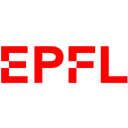Develop skills in biological image analysis through computational methods and scientific visualization techniques for research applications.
Develop skills in biological image analysis through computational methods and scientific visualization techniques for research applications.
Dive into the world of image analysis for life sciences with this comprehensive 7-week course. Designed for scientists with non-engineering backgrounds, this course equips you with essential skills to process and analyze microscopy images. From digital image formation to advanced segmentation techniques, you'll learn how to extract meaningful data from your experiments. The curriculum covers color theory, image filtering, and segmentation methods, emphasizing practical applications in biological research. You'll gain hands-on experience with open-source tools, enabling you to create custom analysis workflows. By the end of the course, you'll be proficient in adapting image analysis techniques to your specific research needs and be part of a growing community of image analysts. Whether you're a researcher, lab technician, or curious scientist, this course will empower you to unlock the full potential of your microscopy data.
4.3
(6 ratings)
14,779 already enrolled
Instructors:
English
English
What you'll learn
Understand digital image formation principles and their application in microscopy
Master color theory and its relevance to scientific image analysis
Apply various image filtering techniques to enhance features and prepare for analysis
Learn and implement different image segmentation methods for object detection
Develop skills in creating and analyzing regions of interest for quantitative measurements
Understand dimensionality reduction techniques for complex image datasets
Skills you'll gain
This course includes:
PreRecorded video
Graded assignments, exams
Access on Mobile, Tablet, Desktop
Limited Access access
Shareable certificate
Closed caption
Get a Completion Certificate
Share your certificate with prospective employers and your professional network on LinkedIn.
Created by
Provided by

Top companies offer this course to their employees
Top companies provide this course to enhance their employees' skills, ensuring they excel in handling complex projects and drive organizational success.





There are 8 modules in this course
This course provides a comprehensive introduction to image processing and analysis techniques specifically tailored for life scientists. The curriculum is structured over seven weeks, covering fundamental concepts of digital image formation, color theory, image operations, filtering, segmentation, and dimensionality reduction. Students will learn how to work with various image types, understand bit-depth and lookup tables, and apply mathematical operations to images. The course emphasizes practical skills, teaching students how to enhance image features, perform segmentation, and extract quantitative data from regions of interest. Advanced topics include color deconvolution for brightfield images and basic macro programming in ImageJ. Throughout the course, students will work with open-source solutions, enabling them to develop flexible, reusable analysis workflows. The instructors, experienced image analysts from a core facility background, focus on good practices and common pitfalls in biological image analysis.
Digital Images
Module 1
Colors
Module 2
Operating on Images
Module 3
Filtering
Module 4
Image Segmentation
Module 5
Regions of Interest
Module 6
Colors and Dimensionality Reduction
Module 7
ImageJ Macro Programming Prime
Module 8
Fee Structure
Instructors

1 Course
Pioneer in Advanced Microscopy and Biomedical Imaging
Arne Seitz is the Head of the BioImaging and Optics Platform (BIOP) at École polytechnique fédérale de Lausanne (EPFL) since 2009. After receiving his Ph.D. in physical chemistry from Philipps-University Marburg in 1999, he held positions at the Max-Planck Unit for Structural Molecular Biology in Hamburg and the European Molecular Biology Laboratory (EMBL). His career includes significant contributions to understanding molecular dynamics, particularly in single-molecule investigations of kinesin movement. At EPFL, he leads a facility providing cutting-edge imaging technologies and expertise across diverse research fields, from biology to engineering. His interdisciplinary approach combines expertise in physical chemistry with advanced microscopy techniques, including widefield, confocal, spinning disk, lightsheet, and super-resolution imaging. Under his leadership, BIOP offers comprehensive training, microscope checkup services, and advanced image processing support, contributing to scientific discovery through state-of-the-art microscopy.

1 Course
Expert in BioImage Analysis and Microscopy
Romain Guiet is a Scientist at the BioImaging and Optics Platform (BIOP) at École polytechnique fédérale de Lausanne (EPFL), where he has served as a crucial link between microscopy, image processing, and biology since receiving his Ph.D. in Life Sciences in 2011. As an image analyst, he specializes in developing and implementing advanced analysis methods for biological imaging, including deconvolution, time-lapse analysis, and deep learning approaches. His expertise encompasses biosample preparation, sophisticated imaging techniques, and quantitative analysis, supporting research projects across EPFL's Life Sciences Faculty. Guiet provides essential training and support for various microscopy systems, from basic widefield to advanced super-resolution imaging. His work focuses on creating reproducible workflows for biological image analysis, optimizing experimental procedures, and advancing the field of quantitative microscopy through collaborative research and development of new analytical tools.
Testimonials
Testimonials and success stories are a testament to the quality of this program and its impact on your career and learning journey. Be the first to help others make an informed decision by sharing your review of the course.
Frequently asked questions
Below are some of the most commonly asked questions about this course. We aim to provide clear and concise answers to help you better understand the course content, structure, and any other relevant information. If you have any additional questions or if your question is not listed here, please don't hesitate to reach out to our support team for further assistance.



